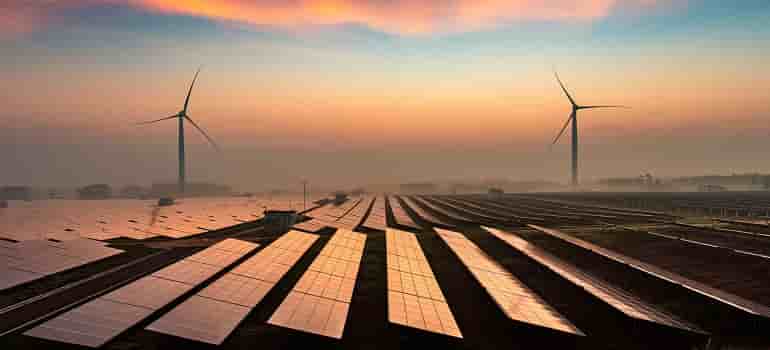World Energy Transitions Outlook highlights the need for increased global ambitions in renewable energy deployment
The International Renewable Energy Agency (IRENA) has released its World Energy Transitions Outlook (WETO) 2023, emphasizing the need for global efforts to triple annual renewable power additions by 2030 in order to meet the 1.5°C climate target.
The report calls for increased ambitions in renewable energy deployment, supported by the development of physical infrastructure, effective policies and regulations, and enhanced institutional and workforce capabilities.
According to the WETO 2023 report, progress has been made in the power sector, with a record-breaking 300 gigawatts (GW) of global renewable capacity added in 2022.
However, the report highlights the growing gap between the achieved progress and the required targets.
The report stresses the necessity for more ambitious renewable energy goals, urging the world to add an average of 1,000 GW of renewable power capacity annually by 2030, as well as significantly increasing the direct use of renewables in various sectors.
As the first Global Stocktake is set to conclude at the 28th Conference of the Parties (COP28) in the United Arab Emirates, the WETO report provides crucial insights and guidance on prioritized actions in the coming years.
IRENA’s Director-General, Francesco La Camera, acknowledged the pressing reality that the world is not on track to deliver on the Paris Agreement. He emphasized the need to follow a science-based pathway centered around renewable energy, leading to energy security, reduced costs, and forward-looking industrial development. La Camera also highlighted the potential of the energy transition as a strategic tool for fostering a more equitable and inclusive world, urging COP28 and the Global Stocktake to provide a strategic blueprint for redirecting efforts back on track toward the 1.5°C target.
H.E. Dr Sultan al-Jaber, the COP28 President-Designate, welcomed IRENA’s recommendations and emphasized the importance of implementation. He called for a tripling of renewable energy capacity by 2030, aligning with the WETO report. Al-Jaber stressed that the speed of the energy transition depends on the rapid adoption of zero-carbon alternatives while ensuring energy security and inclusivity. He also highlighted the need for political will to create the necessary conditions for scaling up renewables, including the development of frameworks, accessible and affordable finance, and expedited expansion of grid infrastructure.
The report also addresses the barriers hindering progress in the energy transition, identifying the lack of physical infrastructure, absence of enabling policies and regulations, and misalignments in skills and institutional capacity as crucial areas to be addressed. It emphasizes the importance of international cooperation and the involvement of national and regional entities, international organizations, and financial institutions to ensure effective contributions to the energy transition. Additionally, the report underscores the significance of directing funds toward the world’s most vulnerable populations.
IRENA continues to collaborate closely with countries, providing support in developing and implementing renewable energy policies aligned with the 1.5°C Pathway outlined in the WETO report. The agency offers technical assistance and capacity building to help nations increase the share of renewables in their energy mix.


